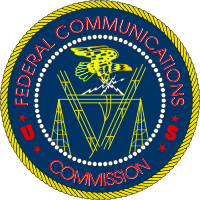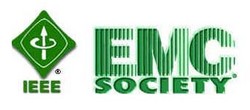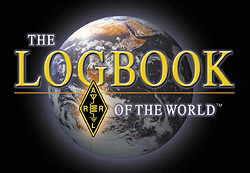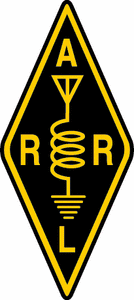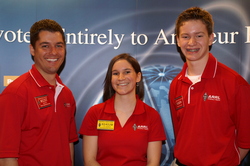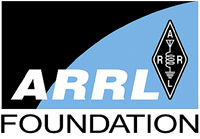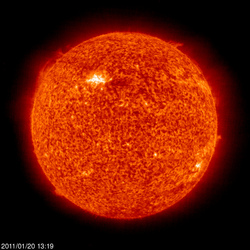 January 20, 2011 John E. Ross, KD8IDJ, Editor
| |||||||||
+ Available on ARRL Audio News + FCC News: ARRL Files Petition for Partial Reconsideration with FCC Regarding Vanity, Club Call Signs
In October 2010, the FCC released a Report and Order, detailing rules changes to the vanity call sign system and call signs for Amateur Radio clubs. These new rules are scheduled to go into effect on February 14. The ARRL found that most changes made by the R&O are "reasonable codifications and clarifications of existing policies." But several amended Sections of Part 97 -- including §§ 97.5 and 97.19 -- are unclear. As such, the ARRL filed a Petition for Partial Reconsideration, urging the FCC to reconsider and modify these portions "in order to reflect the intent of the Report and Order." In the R&O, the FCC took into consideration some of the ARRL's comments, but not all. The ARRL found it "disappointing" that the Commission refused to consider in this proceeding "a series of reasonable proposals aimed at increasing the available pools of Group A call signs." The ARRL, in its comments, asked the FCC to consider several changes that could be made "that would increase the number of desirable call signs available for assignment, both sequentially and in the vanity call sign program, and which would provide greater flexibility in the temporary assignment of special-event call signs in the Amateur Service." Read more here. + BPL: IEEE EMC Society Standards Development Committee Withdraws as Cosponsor of IEEE BPL EMC Standard
Citing concerns about parts of its technical content, the IEEE EMC Society Standards Development Committee (SDCom) has voted to withdraw as the cosponsor of IEEE Standard for Power Line Communication Equipment -- Electromagnetic Compatibility (EMC) Requirements -- Testing and Measurement Methods (IEEE Standard 1775-2010). According to ARRL Laboratory Manager and BPL guru Ed Hare, W1RFI, this decision came about soon after the IEEE Standards Board approved publication of the standard over the technical concerns of the SDCom. Hare is an SDCom member and is a member of the IEEE Working Group that developed the standard. Read more here. + On the Air: Logbook of the World Now Supports VUCC
ARRL's Logbook of the World (LoTW) -- an online system for amateurs to confirm two-way contacts that can be used for various ARRL awards -- has been upgraded to support awards based on Maidenhead grid squares, such as VUCC and the Fred Fish Memorial Award. To take advantage of the new features, you need to log in to your LoTW account. VUCC is an open-ended award in that hams can work on throughout their lifetime, just like DXCC. But, like the Worked All States award, the VUCC rules require all the contacts to be made from a defined area. For VHF and UHF QSOs on 1296 MHz and below, this distance must be within 200 km. For SHF awards, contacts must be made from a single location, defined as within a 300 meter diameter circle. As such, the VUCC support in LoTW allows you to make the rule -- or rules -- necessary to find the QSLs in LoTW that satisfy the VUCC rules. Don't have an LoTW account? It's easy to sign up. Read more here. Amateur Radio in Space: NASA Seeks Amateur Radio Operators' Aid to Listen for Nanosatellite's Beacon Signal
On Wednesday, January 19 at 1630 UTC, engineers at Marshall Space Flight Center in Huntsville, Alabama confirmed that the NanoSail-D nanosatellite ejected from Fast Affordable Scientific and Technology Satellite (FASTSAT). According to NASA, the ejection event occurred spontaneously; the ejection of NanoSail-D also has been confirmed by ground-based satellite tracking assets. NASA is asking radio amateurs to listen on 437.270 MHz for the signal and verify NanoSail-D is operating. Hams should send information to the NanoSail-D dashboard. As of Thursday, January 20, the NanoSail-D dashboard website is reporting that beacon data has been received, but NASA still wants amateurs to track and report the signals. Read more here. + ARRL Board of Directors to Meet This Weekend The ARRL Board of Directors will hold its 2011 Annual Meeting on January 21-22 in Windsor, Connecticut. Directors, Vice Directors and ARRL Board Officers will be in attendance. The meeting will be preceded on Thursday, January 20 with meetings of the Board's Administration and Finance Committee and Programs and Services Committee.
The Administration and Finance Committee is chaired by Northwestern Division Director Jim Fenstermaker, K9JF. This committee reviews and makes recommendations for all administrative and financial matters of the League. Some of these duties include recommending the annual budget to the Board, making recommendations in regard to staff management and monitoring investment of ARRL funds. "The Administration and Finance Committee is involved in overseeing the 'business side' of Amateur Radio from the standpoint of the ARRL," Fenstermaker explained. "We are committed to ensuring that members' needs are being served while being fiscally prudent. This requires an understanding of the financial structure of the ARRL while, at the same time, working with the administration to implement cost effective and relevant programs. We are in a sound financial position and work to continue this status. Thanks to our headquarters staff for focusing on the trade-offs needed to foster this stability." The Programs and Services Committee (PSC), headed by Atlantic Division Director Bill Edgar, N3LLR, studies, advises and makes recommendations for all programs and services provided by the League, including operating activities and the Field Organization. "In January, the Committee recommends to the Board who will receive various ARRL awards, such as the International Humanitarian Award and the George Hart Distinguished Public Service Award," Edgar said. "This year, we split the committee into two sub-committees. These two sub-committees are the Radiosport sub-committee and the Field Services sub-committee. The Radiosport sub-committee reviews the ARRL's contesting and awards programs, while the Field Organization sub-committee reviews the ARRL Field Organization, such as public service, education and other similar programs. Edgar said that the PSC also oversees four advisory committees: the Contest Advisory Committee (CAC), the DX Advisory Committee (DXAC), the Emergency Communications Advisory Committee (ECAC) and the VHF UHF Advisory Committee (VUAC). Each Division Director appoints a representative from their Division to participate on each advisory committee. To serve on an advisory committee, the representative must well-versed and respected in their particular area of expertise." The agenda for the 2011 Annual Meeting is available here. Per the Articles of Association the ARRL Board of Directors meets twice a year, in January and July. + Focus on Youth: ARRL Seeks New Youth Editor
The ARRL has a proud tradition of promoting youth involvement in Amateur Radio. One of the ways we involve young people in our hobby is through our Youth Editor. This person is responsible for writing a monthly column for the ARRL website about youth and youth activities within the Amateur Radio Service. We are looking for a new Youth Editor. Do you know of someone who would be a good fit for this position? Maybe they hold leadership positions either in their Section or in their local club. The candidate must be an ARRL member and must keep their membership current throughout their tenure in the position. He or she will be required to write a monthly column of at least 1000 words and provide a minimum of three pictures (with captions) for each. For this, they will receive a small stipend for each column. Read more here. + ARRL Foundation Scholarship Applications and Transcripts Due February 1
Students planning to apply for the more than 60 scholarships administered by the ARRL Foundation should be aware that the deadline is fast approaching. All materials -- including transcripts -- are due February 1. Beginning this year, applicants must submit all material electronically. No paper forms will be accepted. Read more here. Solar Update
Tad "Like a comet pulled from orbit as it passes a Sun" Cook, K7RA, reports: The average daily sunspot numbers dropped from 50 to 38 on January 6-12 and now 21.3 on January 13-19. The average weekly solar flux over the same three periods dropped from 89.5 to 83.8 to 80.4 over this past week. The latest solar flux prediction shows a value of 82 for January 20-26 and 88 on January 27-30, followed by 87, 85, 85 and 84 on January 31-February 3. Geomagnetic predictions have the planetary A index at 5 over the next couple of weeks, except for a value of 7 on January 22 and February 2-4. Look for more information -- including updated indices, an article on a 3D model of the ionosphere and information on an online propagation prediction program using VOACAP for generating coverage maps and point-to-point MUF data -- on the ARRL website on Friday, January 21. For more information concerning radio propagation, visit the ARRL Technical Information Service Propagation page. This week's "Tad Cookism" is brought to you by Stephen Schwartz's For Good from the musical Wicked. This Week on the Radio This week:
Next week:
All dates, unless otherwise stated, are UTC. See the ARRL Contest Branch page, the ARRL Contest Update and the WA7BNM Contest Calendar for more info. Looking for a Special Event station? Be sure to check out the ARRL Special Event Stations Web page. Upcoming ARRL Section, State and Division Conventions and Events
To find a convention or hamfest near you, click here. ARRL -- Your One-Stop Resource for Amateur Radio News and Information
Click here to advertise in this newsletter. | |||||||||
